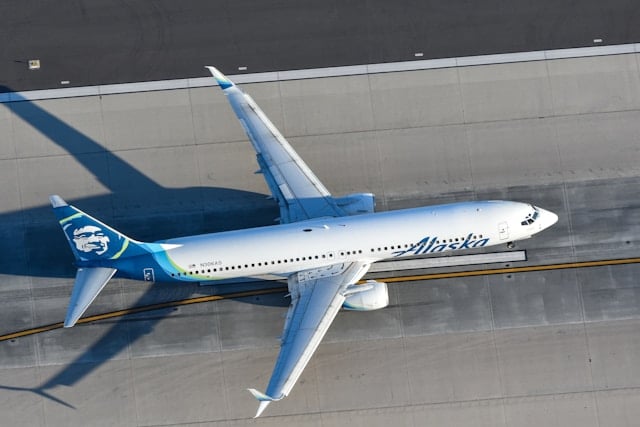China Sees ‘Big Increase’ in Arrivals to Thailand on Visa Rules
In an exciting development for international travel, China has predicted that Thailand will see “a big increase” in visitors from the mainland thanks to the implementation of a visa-exemption program, marking a significant milestone in travel convenience and bilateral relations. Starting from March, tourists from both China and Thailand will enjoy much easier access to each other’s countries, underscoring the already strong ties between these two Asian nations.

Thailand Visa Exemption: A New Era of Travel
The new agreement, signed by Chinese Foreign Minister Wang Yi in Bangkok on a Sunday, introduces a visa-free arrangement for travelers. This Thailand visa exemption allows Chinese tourists to experience the vibrant culture and stunning landscapes of Thailand without the previous visa requirements and vice versa. Specifically, this means:
- Tourists from China can now stay visa-free for up to 30 days per entry in Thailand.
- The provision also allows for multiple entries, with visitors being able to stay a total of 90 days within a 180-day period.
As expressed by Wang Yi, “This will bring our people-to-people exchanges to a new height.” Reflecting the positive expectations this deal holds for the relationship between the two countries.
The Impact on Chinese Tourists in Thailand
Prior to COVID-19, Chinese tourists made up the largest share of visitors to Thailand, topping the charts with more than 25% of the 40 million foreign visitors in 2019. Nonetheless, the pandemic saw a steep drop in numbers, with Chinese arrivals accounting for about 12.5% of 28 million tourists last year. The Thai government, with its target set on attaining 35 million foreign arrivals this year, is especially keen to welcome 8 million expected travelers from China, solidifying the significance of Chinese tourists in Thailand.
Tourism is a crucial economic driver for Thailand, and the efforts to facilitate travel for Chinese visitors are expected to play a pivotal role in sustaining the recovery of the nation’s tourism industry.
Strengthening China-Thailand Ties Beyond Tourism
Tourism isn’t the only area to benefit from the closeness between China and Thailand. China remains Thailand’s largest trading partner and the foremost source of foreign investment. The two countries have pledged to fortify their cooperation, with special emphasis on transportation infrastructure. Most notably, efforts to accelerate the development of the China-Thailand railway stand as testimony to their commitment.
On the agriculture front, China plans to increase imports of speciality agricultural products from Thailand. This extension of trade reflects the diversified approach to the relationship, which also includes:
- Supporting the endeavors of Chinese companies that are planning to invest in Thailand.
Other Visa Initiatives by Thailand
By signing this waive, Thailand continues its pattern of easing visa regulations in the wake of the pandemic to boost its tourism sector. There have been temporary visa waivers implemented for travelers from countries like Russia, Kazakhstan, India, and Taiwan. Additionally, Thailand has been exploring the possibility of permitting longer stays for tourists from some countries to encourage more travel-related spending.
Looking Ahead: A Bright Future for Travel and Commerce
The introduction of the Thailand visa exemption for Chinese tourists marks a turning point for travel between China and Thailand, promising not just a swell in the number of visitors but also reinforcing their economic and cultural bonds. This measure presents a milestone in the ongoing story of China and Thailand’s partnership, as it opens a new chapter defined by ease of travel, expanded commerce, and greater cross-cultural interaction.
Tourists and investors alike can look forward to a future where exploring the wonders of Thailand or doing business in this thriving economy is now more accessible than ever, a development that’s bound to have a long-lasting positive impact on both nations.
Learn Today:
Glossary or Definitions:
- Visa-exemption program: A policy that allows nationals from certain countries to enter another country without the need for a visa, typically for a specified period of time.
Example: The visa-exemption program between China and Thailand enables Chinese tourists to visit Thailand without a visa, and vice versa. -
Visa-free: The condition of being able to enter a country without the requirement of obtaining a visa.
Example: Chinese tourists can now enter Thailand visa-free for up to 30 days per entry. -
Multiple entries: The allowance for a traveler to enter a country more than once within a specific period of time.
Example: The Thailand visa exemption for Chinese tourists allows for multiple entries, enabling visitors to stay a total of 90 days within a 180-day period. -
People-to-people exchanges: Interactions and connections between individuals from different countries as a means to strengthen mutual understanding and relationships.
Example: The visa-exemption program between China and Thailand aims to enhance people-to-people exchanges and promote closer ties between the two nations. -
Foreign arrivals: The number of international visitors entering a country.
Example: The Thai government has set a target of 35 million foreign arrivals, with a particular focus on welcoming 8 million tourists from China. -
Tourism industry: The sector that encompasses activities related to travel, accommodation, and entertainment, contributing to a country’s economy.
Example: The recovery of Thailand’s tourism industry heavily relies on attracting Chinese tourists, as they constitute a significant portion of the country’s visitor numbers. -
Trading partner: A country with which another country engages in significant trade activities, including imports and exports.
Example: China is Thailand’s largest trading partner, reflecting the strong economic relationship between the two countries. -
Foreign investment: Investment made by individuals, companies, or governments from one country into another country’s economy.
Example: China is a major source of foreign investment in Thailand, contributing to the country’s economic growth and development. -
Transportation infrastructure: The physical structures, systems, and facilities involved in the transportation of goods and passengers within a country or between countries.
Example: China and Thailand have pledged to collaborate on transportation infrastructure projects, such as the development of the China-Thailand railway. -
Speciality agricultural products: Unique or high-quality agricultural products that are not commonly found or produced in large quantities.
Example: China plans to increase imports of speciality agricultural products from Thailand, creating new trade opportunities for Thai farmers. -
Waive: The act of giving up or removing a requirement or obligation.
Example: By signing this waive, Thailand has eliminated the need for Chinese tourists to obtain a visa when visiting the country. -
Cross-cultural interaction: The exchange and interaction between individuals from different cultural backgrounds, facilitating the sharing of ideas, customs, and experiences.
Example: The visa exemption for Chinese tourists in Thailand promotes cross-cultural interaction as more Chinese visitors have the opportunity to experience Thai culture. -
Travel-related spending: Expenses incurred by tourists during their travels, including accommodation, transportation, shopping, and dining.
Example: Thailand is exploring ways to encourage longer stays for tourists from certain countries to boost travel-related spending and support the recovery of the tourism sector.
So, there you have it – the new Thailand visa exemption for Chinese tourists is set to revolutionize travel between these two countries. With easier access, enhanced cultural exchanges, and strengthened economic ties, it’s an exciting time for both nations. To discover more about visas and travel updates, head on over to visaverge.com. Happy exploring!
This Article in a Nutshell:
China’s visa-exemption program for Thailand is expected to lead to an increase in tourists from China, strengthening bilateral ties. Chinese visitors can now stay in Thailand for up to 30 days per entry, and multiple entries are permitted. This move is crucial for Thailand’s tourism industry and its goal of welcoming 8 million Chinese tourists this year. The partnership between China and Thailand extends beyond tourism, with plans for cooperation in transportation infrastructure and agriculture. This visa exemption marks a new era of travel and commerce between the two countries.













